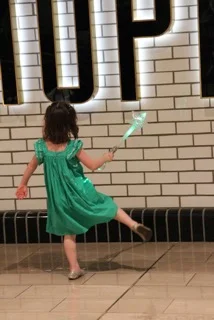Breathe, Breathe and Breathe
When I teach scuba dive, one question that is almost always asked by the newbies is “how long can the air tank last?”
When I teach scuba dive, one question that is almost always asked by the newbies is “how long can the air tank last?”
The answer is simple: for a good dive, the goal is always to maximize your time underwater by prolonging the air consumption rate. The air consumption rate will depend on how you breathe and move underwater. Broadly speaking:
The more vigorous movements you make, the more air you need to consume - if you move a lot (like kicking very hard), you are likely breathing shorter and faster. As a result, you will use up the air tank faster. If, however, you move slowly and breathe in a consistent pace, your air tank can last longer.
The more you move against a force, the more air you need to consume - If you are diving against the current, you will need to kick harder in order to move forward and, therefore, you will breathe faster and consume more air. However, if you are drift diving (i.e. let the current pushes you), you will be moving very little and, therefore, you will breathe slower and consume less air.
The more stressed you are (emotionally and physically), the more air you need to consume - When you are anxious and nervous, your breath is short and faster. When you are calm and relaxed, your breath is long and slower. During a dive, the slower you breathe, the lower your heart rate – and in turns, you become more calm and relaxed.
The more pressure you are under, the more air you need to consume - If you dive in shallow depth (like less than 15 metres), you are under less pressure and, therefore, can breathe smoothly and slower. However, if you go deep (like 20 – 40 metres), the pressure underwater will cause the air to become denser and therefore, harder to breathe. The tip is to breathe in a deliberately slower and longer pace.
Whether you are a scuba diver or not, by now you should see a pattern on how our breathing can be influenced by our own external and internal environments.
Likewise, it is easy to make the metaphorical correlation between being underwater and being above water. For the latter, we all are subject to pressure, stress, anxiety and negative energy and emotions. The breathing strategy for scuba diving is totally relevant and applicable to our daily life.
An amazing wonder of our human body is that we can consciously control our breathing. In fact, when we can control our breathing, we are aiding ourselves to become resilient.
In short, breathing is the foundation to good health and movement.
Here is a simple breathing exercise that you can do and with some variations that you can add later in your own time.
1-minute Breathing Exercise:
Sit on a chair with your back fully supported
Close your eyes to help you focus
Place the tip of your tongue against the back your upper teeth
INHALE through your nose into your lungs and to its maximum capacity
EXHALE through your nose, emptying your lungs like deflating a balloon
Repeat continuously for 1 minute (or until you want to stop).
It takes only 1 minute a day of your time as a starter. As you start to feel the benefits, you will naturally create more time for yourself to just do these breathing exercises.
Some additional variations that you can add later.
Variation 1 - Pace your inhaling and exhaling with specific length of time. For instance, INHALE and count 1 to 3 as you are inhaling; then EXHALE and count 1 to 3 as you are exhaling. Make it a smooth transition. Over time, as you become more familiar, you can extend the length of time for inhaling and exhaling.
Variation 2 - For scuba divers, you can switch to breathing through your mouth. At the same time, you INHALE by sipping air in slow motion and counting 1 to 5 or more until you fill up your lungs. Then you EXHALE by blowing air in slow motion and again counting 1 to 5 or more until your lungs are empty.
I would love to hear from you on your experience – even if you don't get the breathing exercise and have more questions about it. Please do get in touch by email to info@luxenova.co or by leaving a comment here.
Author: Stephanie Luo
Life is a ship - the Confession of a Diving Junkie!
When I first picked up scuba diving, I instantly became (and still am) addicted to the sensations of neutral buoyancy. I love it because...
“Life is a Ship, Seize it” ~ said a Hong Kong Admiralty Court Judge
Water sports are one of the crown jewels of Hong Kong living, especially, in the heaty summer time. While most people stay above water, I love going underwater to scuba dive – whether for fun or for training.
For non-divers, I would articulate my passion (or chronic addiction) for being underwater this way - when I am underwater,
my mind is focus and yet relaxed;
my body is weightless;
I breathe consciously to maintain the neutral buoyancy;
my curiosity goes wild;
I see an entirely different world;
when I surface, my perspective has changed;
I feel whole again; and
I appreciate being in the present moment even more.
When I first picked up scuba diving, I instantly became (and still am) addicted to the sensations of neutral buoyancy. I love it because my physical body is working in harmony with the forces of nature - gravity and water drag - through my breathing and finning. Once I am present, I am enjoying the underwater environment.
I love being in the state of calm, especially when my surrounding environment is chaotic. Throughout my legal and banking profession, it has always been my “secret” personal goal – striving to stay calm and dispassionate in the midst of challenges and to overcome these with grace and elegance.
My passion for scuba diving has become the support system for my career and personal development - in a holistic way. It is where I connect with my spirituality.
Likewise, I was steered away from my corporate job simply because I fell passionately in love with executive coaching and leadership development. I am in this new game with the mission to work with corporate executives to create their own support system to maintain and enhance the quality of life and wellbeing. As they are more in touch with their own human elements, they will become better leaders and make the world better.
Now with my “executive coach” hat on, I invite you to ponder on these:
* What tickles your passion in life?
* What has your passion taught you about yourself?
* What do you do (or can you do) to live that passion in your roles (as an executive, son, daughter, lover, parent etc)?
I would love to hear your thoughts. So please do feel free to get in touch or share your comments.
Contributor: Stephanie Luo




























Authenticity and spiritual intelligence are co-related…